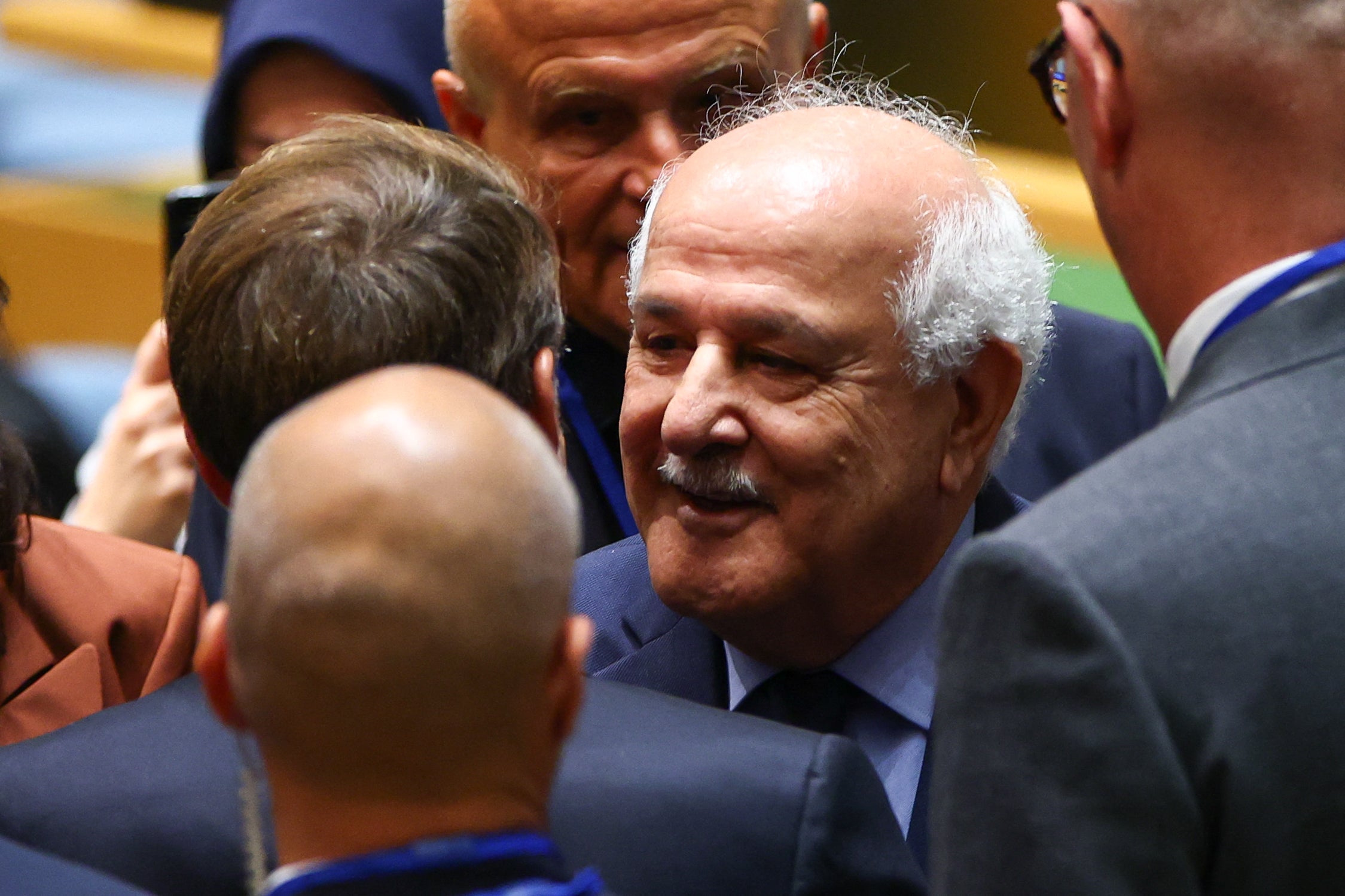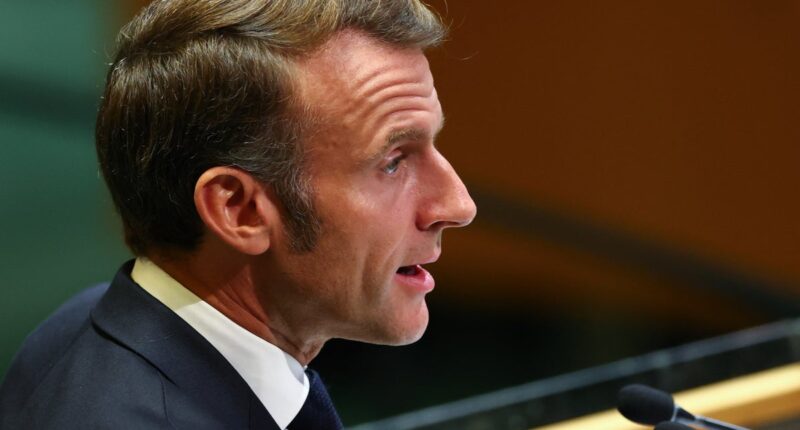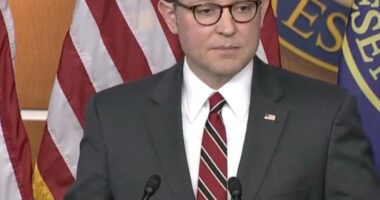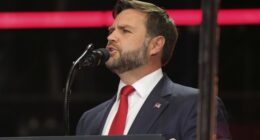France has become the fifth country in two days to officially recognise the state of Palestine.
The move came during a United Nations conference chaired by France and Saudi Arabia aimed at generating new support for a two-state solution to the Israeli-Palestinian conflict.
French president Emmanuel Macron made the announcement in the UN General Assembly hall; he received loud applause from the more than 140 leaders in attendance. The Palestinian delegation, including its UN ambassador, Riyad Mansour, could be seen standing and applauding as the declaration was made.
Mahmoud Abbas, the Palestinian president, was also seen applauding on a live-camera view after the US government banned him – and dozens of other Palestinian officials – from attending the UN gathering in person. Mr Abbas later addressed the meeting.
“True to the historic commitment of my country to the Middle East, to peace between the Israelis and the Palestinians, this is why I declare that today, France recognises the state of Palestine,” Mr Macron said.

The meeting and expanded recognition of Palestinian statehood are expected to have little if any actual impact on the ground, where Israel is waging another major offensive in the Gaza Strip and expanding settlements in the occupied West Bank.
The United Kingdom, Canada, Australia and Portugal recognised the state of Palestine on Sunday, and the Palestinians expect a total of 10 countries to do so in the coming days. Around three-fourths of the 193-member United Nations recognise Palestine, but major Western nations had until recently declined to, saying one could only come about through negotiations with Israel.
The creation of a Palestinian state alongside Israel in the West Bank, Gaza and east Jerusalem – territories seized by Israel in the 1967 six-day war – is widely seen internationally as the only way to resolve the conflict, which began more than a century before Hamas’s 7 October attack ignited the war in Gaza nearly two years ago.
Israeli prime minister Benjamin Netanyahu’s government opposed Palestinian statehood even before the war and now says such a move would reward Hamas, the militant group that still controls parts of Gaza. He has hinted Israel might take unilateral steps in response, including annexing parts of the West Bank, which would put a viable Palestinian state even further out of reach.
A UN official brushed off such threats, saying efforts to bring about a two-state solution should continue regardless of Israel’s actions. “I think we have to be determined in achieving the goal that we want to achieve, and we cannot be distracted by threats and intimidation,” said UN spokesman Stephane Dujarric.
Netanyahu is under pressure from his far-right coalition to move ahead with annexation, but the United Arab Emirates — the driving force behind the 2020 Abraham Accords, in which the UAE and three other Arab states forged ties with Israel — has called it a “red line,” without saying how it could affect the two countries’ now close ties.
Netanyahu said he would decide on Israel’s response to the Palestinian statehood push after meeting with President Donald Trump at the White House next week, their fourth meeting since Trump returned to office. The Israeli leader is set to address world leaders at the U.N. on Friday.
The Trump administration is also opposed to growing recognition of a Palestinian state and blames it for the derailment of ceasefire talks with Hamas. Trump’s envoy, Steve Witkoff, walked away from the talks in July, and earlier this month an Israeli strike targeted Hamas negotiators in Qatar, a key mediator.
More to follow…









